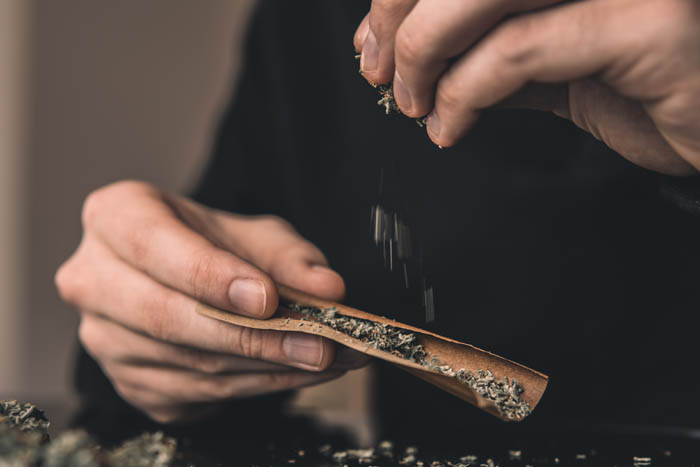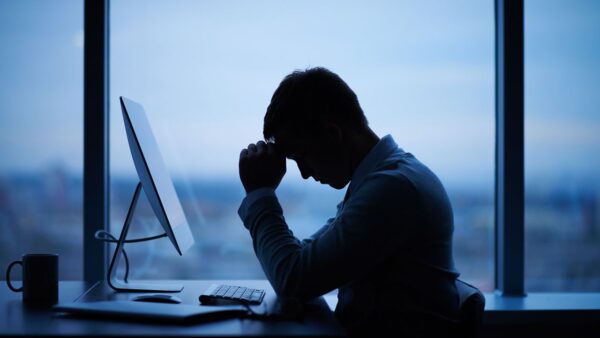Have a question? +336 70 73 89 02
🔞 Not for sale to under 18s
🎃 -40% with code HALLOWEED (on EVERYTHING except vaporizers and gummies) 🎃
Have a question? +336 70 73 89 02

Cannabis is a plant native to Central and South Asia. Plants rich in fiber and low in Tetrahydrocannabinol (THC*) are called "hemp" or "agricultural hemp", while THC-rich varieties are called "Indian hemp" or cannabis.
Cannabis comes in many forms Cannabis comes in a variety of forms: flowers, leaves, resin or oil, and more marginally, cannabis can also be incorporated into food preparations such as cakes/space-cakes, or taken as an infusion. In flower or resin form, it is generally smoked as a joint. However, this type of consumption is prohibited in France, whether it involves hemp or cannabis. We remind you that the products available in our store are intended for infusion.
Cannabis can be used for recreational purposes in search of a "high", or for therapeutic purposes - experiments are currently underway in many Western and Asian countries.
Cannabis is a plant with psychoactive effects.Its use alters perception, mood and consciousness. It is also habit-forming and addictive. This is why, in France, cannabis is classified as a narcotic, among drugs.
The main psychoactive constituent of cannabis is delta-9-tetrahydrocannabinol, also known as THC for short. But it's not the only psychoactive compound: alongside THC, there's also THC-V Le (tetrahydrocannabivarin) and THC-P ("tetrahydrocannabiphorol", also known as "Delta-P"), although these are available at much lower levels (less than 1% THCP and THCV, compared with regularly over 20% THC)..

The average THC concentration of cannabis flower is around 11% in 2018, while that of resin averages 26.5%. The THC concentration of resins has tripled in fifteen years, while that of weed has risen by 40% over the same period[2]. However, this increase has come at the cost of the concentration of other cannabinoids. While THC increased, CBD, CBG and all other cannabinoids decreased. We now know that the psychotropic power of cannabis is not only caused by THC levels, but by the balance of all the compounds involved. This is known as the "entourage effect". This explains why, despite the ever-increasing THC content of marijuana, its psychotropic potency has not increased in tandem.
In high doses, THC produces cannabic intoxication, characterized by feelings of euphoria and physical well-being. It is accompanied by a dissociation of ideas, and errors of appreciation of time and space (reduced alertness). Sensory perceptions are heightened and generally pleasant[3].
In cases of bad trip, sometimes due to over- or under-dosing[4], intense anxiety, tremors, cold sweats, paranoia, etc....[3] are observed.
Short-term symptoms are always present: disorganized memory, impaired judgment, difficulty concentrating...
But there are also long-term effects: mood disorders, addiction, and an increased risk of psychological disorders.
What's more, when smoked, cannabis can also cause a variety of respiratory and cardiac problems .
The term addiction is used when a product is used to satisfy a craving. Dependence increases as the recurrence of craving also increases. As a resulthe use of cannabis takes on increasing importance and becomes a craving.
Addiction is estimated to affect more than half of all daily cannabis users.[5]
In general, the symptoms of cannabis addiction are :
- A loss of control over consumption and a gradual increase in doses.
- Increasing mood instability
- A reduction in activities and current interests in favour of cannabis consumption
- Continued consumption despite recognition of the negative effects on one's own health
Withdrawal symptoms occur in half of all people who stop using cannabis after a long period of regular use. who stop using after a long period of regular use[6] . Attempts to stop using cannabis often result in increased nervousness, irritability, agitation, sleep disturbance and anxiety, which can lead to depression. In rarer cases, gastrointestinal pain and reduced appetite or weight loss may also occur[6][7].
Withdrawal from cannabis can be long and difficult for some people, but it is not harmful to health[6].
At present, there is no specific drug treatment for cannabis withdrawal[8][9] . Anxiolytics can be used to counter anxiety symptoms, but they are not without side effects.
Cannabidiol (CBD) is a molecule derived from the hemp plant. It's a cannabinoid in the same way as THC, but CBD is totally devoid of psychotropic effects. What's more, French legislation recognizes that CBD is non-addictive.
An initial study from May 2015[10] from the University of Montreal talks about CBD in these words "Preclinical studies suggest that CBD may have therapeutic properties on opioid, cocaine and psychostimulant dependence, and some preliminary data suggest that it may be beneficial in cannabis and tobacco dependence in humans."
In this study, a clinical test was carried out on a 19-year-old cannabis-dependent woman who suffered withdrawal symptoms when she tried to stop using cannabis. She was given cannabidiol for 11 days:
300 mg on day 1,
600 mg from day 2 to day 10
300 mg on day 11.
Daily assessments using the Cannabis Withdrawal Symptom Checklist, Beck Anxiety Inventory and Beck Depression Inventory showed a rapid decrease in withdrawal symptoms . A 6-month follow-up showed a relapse to cannabis use, but at a lower frequency (once or twice a week versus 7 days a week).
The study concludes that "CBD possesses several therapeutic properties that could indirectly be useful in the treatment of addictive disorders, such as its protective effect on stress vulnerability and neurotoxicity."
A second study, published in December 2015[11], also involved a single patient: a 27-year-old man. He had a long-standing diagnosis of bipolar disorder and a daily dependence on cannabis. The subject exhibited unstable behavior, anxiety, changing sleep patterns and irritability.
CBD oil was added to his usual treatment with a dosage of 24mg/day at the start of treatment, then 18mg/day thereafter. Thanks to CBD, the subject reported being less anxious and having fixed sleeping hours. He also became more sociable with family and friends.
With a dosage of 18 mg CBD per daythe patient was able to combat his dependence and not reconsume cannabis..
The study also points out that "clinical studies have shown that CBD leads to reduced anxiety, improved sleep and other neuroprotective effects."
Anxiety and sleep disorders are major symptoms of cannabis dependence, and the neuroprotective effect is thought to be multifactorial (memory, motivation, etc.).
In October 2020, the renowned scientific journal The Lancet published a study [12], conducted over more than a year, in double-blind conditions, on 48 participants with cannabis addiction.
The main objective of the study was to identify the most effective dose of cannabidiol for reducing cannabis consumption. It should be noted that the subjects had no desire to stop or reduce their consumption.
For 4 weeks, 12 people received placebo, 12 received 200mg CBD, and 12: 400mg and 12: 800mg CBD. During the interim results, the 200mg CBD dose was dropped from the study as ineffective in reducing cannabis consumption. The 400mg and 800mg CBD doses were found to be effective compared with placebo, reducing the effect of THC and lowering cannabis consumption by around half a day a week.
Indeed, as we've just seen, studies seem to be coming up with encouraging results about the use of CBD to combat addiction. But it's not the only cannabinoid that seems to have this power. As you know if you follow CBD news, new cannabinoids are constantly being discovered, like THC-h, for example. And among this list of new molecules, some seem to have the same addiction-inhibiting power. We're talking about THC-V (tetrahydrocannabivarin). A study carried out in 2021 on rats showed that THCV intake helped them to break the compulsive urge to smoke. However, we still know very little about THCV and its effects, so we'll have to wait a little longer before we can be sure of its action on addiction. If you'd like to find out more, take a look at our blog articles.
A 2017 French INSERM study[13] on "cannabis and cannabinoids", states that "numerous studies have found that CBD can have a significant beneficial impact on several areas. CBD may have a protective effect against some of the negative psychological effects of THC. It is capable of blocking at least some of the undesirable effects associated with THC".
A recent study from 2019[14], confirms that "CBD blocks THC's ability to overstimulate the hippocampus (plays a central role in memory) and thus prevent its negative side effects."
An Australian study dating from July 2019[15], entitled "Sativex for the treatment of cannabis dependence", carried out with a drug called Sativex composed of CBD and THC with a ratio close to 1:1.
For 12 weeks, participants had weekly clinical examinations, psychological support and flexible doses of medication (Sativex) - up to 32 sprays a day (tetrahydrocannabinol, 86.4 mg and cannabidiol, 80 mg), delivered weekly.
It found that the placebo group cannabis use over the course of the 12 weeks than the SATIVEX group. over 12 weeks than the SATIVEX group. The estimated was 18.6 days on average.
This study demonstrates that SATIVEX treatment, in combination with psychosocial interventions , is a safe approach to reducing cannabis use in cannabis-dependent people seeking treatment.
Po conclude, CBD does indeed appear to have the potential to help consumers combat their dependence on cannabis. All the preliminary results bear witness to this, but many more studies are needed to develop a solution that works for the greatest number of people, and to prove its effectiveness.
If this article has caught your interest and you find yourself wanting to stop using cannabis but can't, we can only urge you to try CBD. After all, you won't lose much by trying it, and it's always better to consume a legal, controlled product!